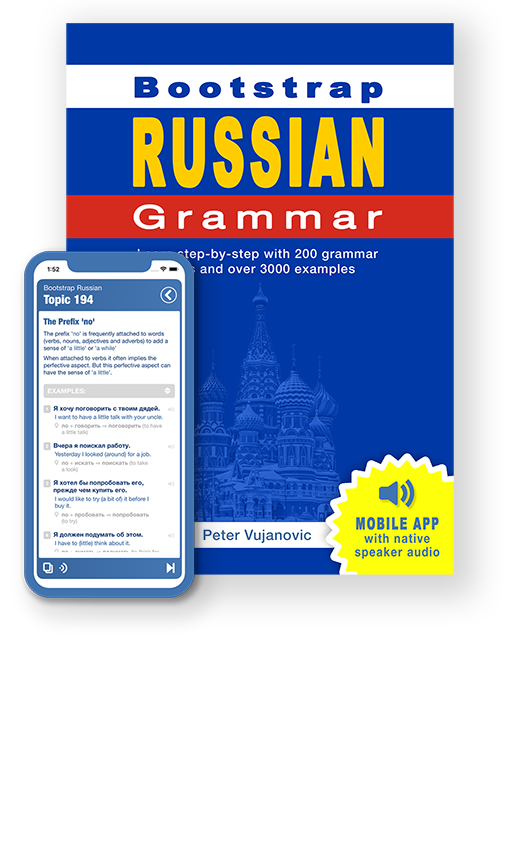Russian grammar - Nobody and nothing - никто and ничто |
|||
|
|||
The indefinite pronouns: никто means 'nobody' or 'no one' and ничто means 'nothing'. • никто and ничто are the nominative forms used as the subject of a sentence. When the object of the verb, they take their accusative forms: • Accusative: никто ⇒ никого; ничто ⇒ ничего They are frequently used in their genitive form when expressing negation or absence. • Genitive: никто ⇒ никого; ничто ⇒ ничего When the pronoun is the subject or direct object of the sentence it is paired with не or нет resulting in a 'double negative'. Also these indefinite pronouns can be split by propositions such as y. |
| Examples: | |
|
Я никого не знаю в Лондоне.
I don't know anyone in London.
|
|
|
Он ничего об этом не знает.
He knows nothing about that.
|
|
|
Я ничего не делал.
I didn't do anything.
|
|
|
Никого нет дома.
Nobody is at home
|
|
|
Там они никого не видели.
They did not see anyone there.
|
|
|
Ничего они там не видели.
They did not see anything there.
|
|
|
У меня ничего нет.
I don't have anything.
|
|
|
Почему в сумке ничего нет?
Why is there nothing in the bag?
|
|
|
Почему ты ничего не говоришь об этом?
Why don't you (informal) say anything about that?
|
|
|
Ни у кого нет книги.
Nobody has a book.
|
|
|
Он танцует без ничего.
He dances without anything on (naked).
|
|
|
Это не хорошо ни для чего.
It is not good for anything.
|
|
|
В коробке нет места ни для чего.
There is no room for anything in the box.
|
|
|
Я ни от чего не бегу.
I am not running away from anything.
|
|
|
В бутылке ничего нет.
There is nothing in the bottle.
|
|
|
На автобусной остановке никого нет.
There is no one standing at the bus stop.
|
|
|
Ни у кого нет моего телефона.
No one has my phone.
|
|
|
Это письмо ни от кого!
It is a letter from no one!
|
|
|
Дома никого не было.
No one was at home.
|
|
|
Поскольку он ничего не ел на завтрак, сейчас он очень голоден.
Since he didn't eat anything for breakfast, he is very hungry now.
|
|
 |
|


 object so
object so 
